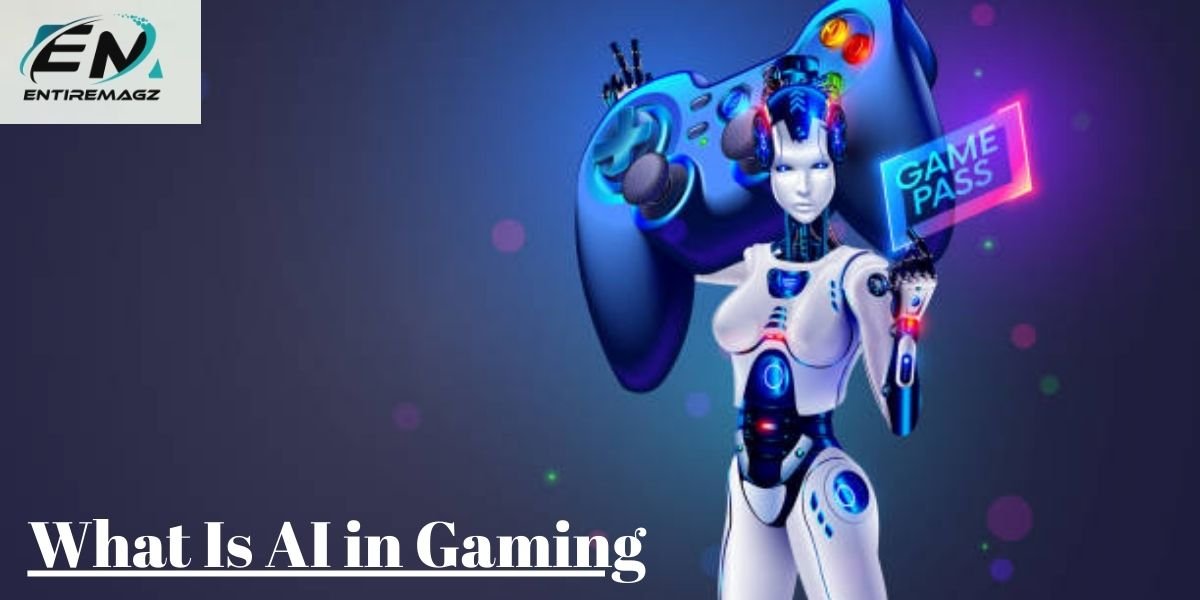Artificial intelligence (AI) is profoundly reshaping the global gaming ecosystem. It is revolutionizing both a technological and a lucrative market opportunity. This is how it’s redefining the entire gaming world.
The global AI in gaming market in 2025 is valued at $7.05 billion, with estimated projections to reach $38 billion by 2034. It is growing at a CAGR above 20%.
AI is changing games by adding personalization and smarter characters. It allows NPCs to adapt to each player, which adds fun, adventure, and unique gameplay. AI is now a part of building the games of the future. AI is leading the way in game creation.
AI is making games more engaging and personalized by making them more exciting and personal. It is the foundation of modern game design.
The widespread integration of artificial intelligence within the gaming industry has reached a remarkable scale. Nine out of ten game developers are now using AI technologies in their creative pipelines. It’s the backbone of the industry’s next evolution.
AI is transforming the gaming landscape with smart tools and processes. AI is now capable of crafting living, hyper-realistic worlds, adaptive gameplay, responsive narratives, and deep personalization. AI is directly raising consumer demand for interactive and engaging content.
The global gaming sector is expected to climb to around $200 billion by the end of 2025. AI breathes new life into the art, opening up endless new possibilities for creators and players alike.
| Table of Contents AI’s Role in the Gaming Industry Pos and cons of AI in game development Challenges and ethical considerations Future Outlook of AI in Gaming Final words |
AI’s Role in the Gaming Industry
Artificial intelligence (AI) is now a promising experiment for a powerhouse new era of creativity and efficiency. AI isn’t just a tool, but it fuels every stage of the gaming journey. Its impact extends beyond production automation, content creation, and player personalization.
By 2026, every major studio and numerous independent developers will be incorporating AI solutions into their core operational strategies. This transition represents a shift to faster innovation, richer worlds, and smarter games.
Game Design & Development
AI is streamlining game design and development solutions by automating production tasks, including creation, concept art, dialogue delivery, testing, and optimization.
For instance, Ubisoft’s Ghostwriter is an AI-assisted engine that assists narrative teams and produces natural-sounding NPC dialogue.
At the same time, Unity and Unreal Engine use advanced AI modules to handle code creation, debugging, and playtesting. These tools together streamline workflows with remarkable precision and efficiency.
Smarter NPCs and Opponents
Modern AI allows NPCs to act less like scripted entities and deliver deeper engagement. Now, say goodbye to predictable enemies.NPCs now perceive more like real opponents.
They can strategize, communicate, and adapt behaviors accordingly. They make games more realistic and challenging. These technologies act like human intelligence within game worlds. The line between scripted characters and attentive actors is fading.
Procedural Content and World Building
Generative AI turned procedural generation beyond randomization. AI is reducing production costs and boosting creative scale.
Thanks to generative AI for filling unique quests and environments. These systems automatically design content diversification, storylines, and events that offer players endlessly diverse adventures.
Quality Assurance and Bug Detection
AI-based QA tools and agents simulate thousands of gameplay sessions like Nunu.ai can run endless playthroughs to maintain high-quality standards without human testers. This ensures smooth gameplay with quick and improved production.
Player Experience and Personalization
AI is personalizing play itself. Developers use AI to analyze players’ data to customize game strategies.
AI can now change storyline, difficulty, and visuals in real time using behavioral and physiological feedback. This can maximize satisfaction and extend player lifetime value.
Pos and cons of AI in game development
Where AI offers several benifits, there are a few drawbacks to it in the context of game development
| Pos of AI in game development | Cons of AI in game development |
| AI allows highly personalized gameplay for every user, which improves player engagement and retention. | Personalized gameplay raised privacy concerns as it relies on the detailed analysis of users’ behaviors. |
| AI helps with playtesting and bug detection. This process speeds up the quality assurance and reduces the workload. | It may lead to the loss of human artistic needs. The emotional depth and storylines are the assets in creation. |
| It helps in decreasing the game development timeline. It reduced the cost by automating manual and repetitive tasks. | It can replace human jibs, especially when it comes to repetitive tasks and basic asset creation. |
| smarte NPC behaviors, procedural worlds, and adaptive gameplay environments are more realistic with AI-based tools. | It can raise ethical concerns as AI use can cause copyright content issues with algorithms and game manipulation. |
| AI helps in getting real-time market insights. It can adjust settings, difficulties, user experience, and satisfaction. | It requires the consumption of more energy and increased infrastructure costs, along with supportive AI systems. |
Challenges and ethical considerations
AI is improving the way games are built, played, and enjoyed. It helps developers to create better gameplay, faster production, and more interesting and intelligent games. It gives creators tools to design smarter ways to play.
However, AI also brings some big problems in technology, ethics, and cost. These challenges need to be managed carefully for safe and responsible use.
Real-time Performance and flexibility
Sometimes, Cloud AI can slow down games. AI takes longer to process player actions and travels between servers, which causes delays of up to 800 milliseconds. It is making the game seem slower and less realistic.
Expanding this technology to millions of players requires extensive infrastructure, technical debt, higher costs, and less control over how smoothly their games run.
Quality Concerns
Developers have growing concerns that AI-generated content may not meet professional quality standards. These tools can produce material that is generic or lacks emotional depth.
That’s why experienced team members play a key role. Developers are needed o check the work and maintain the artistic integrity of a game.
Higher costs
AI tools involve sophisticated skills and integration, which require skilled staff. These tools need specialized hardware/software and compliance requirements, which add costs of $250,000 or more in initial investment.
Data privacy concerns
AI personalization is adding to data and privacy concerns. AI systems rely on personalized data, which is in large amounts. They analyze users’ behavior through this data, which raises regulatory compliance concerns.
35% of game developers are facing this major challenge, and 32% are being questioned about the ownership of AI-generated game content.
Job displacement
AI-based reliance is threatening human job displacement. It is threatening the creative and technical roles that a human can fulfill because AI lacks emotional intelligence.
Game addiction
The personalized game experience is making games more addictive and increasing the risks of social isolation, which is adding mental health challenges.
Future Outlook of AI in Gaming
The future outlook of AI in gaming can impact both game developers and players. According to experts, it is expected that by 2030, whole games and even content within them will be generated in real time using AI.
It can increase the environment levels, characters, and storylines to adapt according to players.
- AI will generate assets, including 3D models, music, and a totally new era where players can co-create game content. This will add infinitely replayable worlds.
- AI analytics and player modeling will offer more personalized experiences to adjust gameplay levels, including storyline, environment, and difficulty levels, according to each player.
- AI will power new metaverse platforms that will enhance the social and interactive experiences. The metaverse is expected to reach $280 billion in revenue by 2025.
- Cloud gaming will grow mainstream and reduce the latency and increase the gaming quality to reach global audiences.
Final words
AI is no longer just an experimental tool but is creating real impact in various industries. AI is taking over in game development by helping the game industry with personalized and more realistic approaches.
AI is creating new opportunities and challenges alike. For developers, the threat is not to adopt AI but how to integrate their skills with powerful AI strategies to make a real impact in the gaming world.
Must Read: What are the benefits, threats, and impacts of AI in the entertainment industry?

